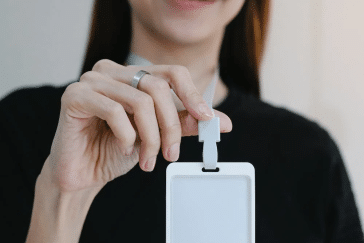October 9, 2023
It can be disheartening and frustrating when you feel like you’re putting in a lot of effort and not getting anything in return from your partner. We’ve all been there – pouring our heart and soul into a relationship or a crush, only to receive little or no response in return. It’s an all-too-common experience that can leave us feeling hurt, frustrated, and stuck in a cycle. But the truth is, we don’t have to stay stuck in this place of imbalance in a relationship forever. In this article, I’ll explore practical strategies for breaking this cycle of imbalance and moving on to healthier, more fulfilling relationships. From identifying the signs of an unbalanced relationship to practicing self-care and setting boundaries, I’ll cover everything you need to know to start the healing process. So, if you’re tired of feeling stuck and ready to take control of your love life, read on for some valuable insights and tips.
An unbalanced relationship is a situation where one person has strong feelings for another, but those feelings are not returned. It can happen in any type of relationship, whether it’s a crush, a friendship, or a romantic relationship. The person who is experiencing an unbalanced relationship may feel like they are constantly putting in effort and getting nothing back in return. It can be a painful and frustrating experience, and it can be difficult to know how to move on from it.
There are several signs that you may be experiencing an unbalanced relationship. One of the most common signs is that you are always the one initiating contact or making plans. You may feel like you are constantly putting in effort to maintain the relationship, while the other person seems indifferent or uninterested. Another sign is that the other person is not willing to commit to the relationship in the way that you would like. For example, they may be hesitant to make plans for the future or introduce you to their friends and family. It’s important to recognize these signs early on, as continuing to pursue a relationship that is not reciprocal can be emotionally draining and damaging to your self-esteem.
An unbalanced relationship can be incredibly painful, and there are a few reasons why. For one, it can make you feel like you are not good enough or worthy of love. You may start to question what is wrong with you, and why the other person doesn’t feel the same way. Additionally, an unbalanced relationship can be a blow to your ego. It’s natural to want to be liked and desired, and when those feelings are not returned, it can be a blow to your self-esteem.
Another reason why an unbalanced relationship hurts so much is that it can be difficult to let go of your feelings. You may feel like you have invested so much time and energy into the relationship that it’s hard to imagine moving on. You may also worry that you will never find someone who feels the same way about you.
One of the first steps in addressing an imbalance in a relationship is to recognize and communicate your needs to your partner. Often, we assume that our partner should know what we want or need, but this is not always the case. Take some time to reflect on what you need from the relationship and then have an open and honest conversation with your partner. Sit down with your partner and have an open and honest conversation about how you’re feeling. Express your concerns and let them know that you feel like you’re giving more than you’re getting. It’s important to approach the conversation with empathy and understanding, as your partner may not be aware of the imbalance or may have their own reasons for their behavior. Listen to their perspective and try to find a solution together. This could involve renegotiating responsibilities, setting boundaries, or finding ways to meet each other’s needs more effectively. Remember, a healthy relationship is built on mutual respect and understanding, and addressing imbalances is a crucial part of maintaining that balance. So, clearly express your feelings and desires, and listen to their perspective as well. Effective communication is key in finding a balance and ensuring that both partners feel heard and understood.
When you find yourself constantly giving more than you’re getting in a relationship, it’s important to set boundaries and prioritize self-care. This means recognizing your own needs and taking steps to meet them, even if it means saying no or taking time for yourself. Setting boundaries can help establish a healthier dynamic in the relationship and prevent feelings of resentment or burnout. Additionally, prioritizing self-care is crucial for maintaining your own well-being and ensuring that you have the energy and emotional capacity to give to the relationship. This may involve engaging in activities that bring you joy, practicing self-care rituals, or seeking support from friends, family, or a therapist. Remember, taking care of yourself is not selfish, but rather a necessary part of maintaining a balanced and fulfilling relationship.
If you’ve tried communicating with your partner and making changes on your own but still feel like the imbalance in your relationship persists, it may be beneficial to seek professional help or counseling. A therapist or relationship counselor can provide guidance and support as you navigate through these challenges. They can help you explore underlying issues, improve communication skills, and develop strategies for finding balance in your relationship. Remember, seeking help is not a sign of weakness, but rather a proactive step towards improving your overall well-being and the health of your relationship.
When you find yourself constantly giving more than you’re getting in a relationship, it’s important to take a step back and evaluate if the relationship is healthy and worth continuing. Ask yourself if your needs and wants are being met, if there is mutual respect and support, and if the imbalance is a temporary issue or a recurring pattern. It’s important to remember that a healthy relationship should be based on equality, trust, and reciprocity. If you find that the relationship is consistently one-sided and causing you emotional distress, it may be time to reassess and consider if it’s worth continuing. Seeking the advice of a therapist or counselor can also be helpful in gaining clarity and guidance in making this decision.
As difficult as it may be, letting go of an unbalanced relationship is an important step in moving on. Holding onto feelings that are not being returned will only lead to more pain and frustration. It’s important to remember that you deserve to be with someone who loves and values you for who you are.
One way to start letting go is to take a break from the relationship. This may mean not contacting the other person for a period of time, or even cutting off contact completely. It can be difficult to do, but it’s important to give yourself space and time to heal.
Moving on from an unbalanced relationship can be a long and difficult process, but there are several things you can do to make it easier.
One of the most important things you can do is to focus on yourself. This means practicing self-love and self-care, and doing things that make you happy. Take up a new hobby, go on a trip, or spend time with friends and family. Whatever it is that brings you joy, make time for it.
Another important aspect of moving on is seeking support from friends and family. Talk to someone you trust about your feelings, and let them be there for you. Having a support system can make all the difference in the healing process.
If you are struggling to move on from an unbalanced relationship, it may be helpful to seek professional help. A therapist or counselor can provide you with tools and strategies to help you heal and move forward.
An unbalanced relationship can be a painful and frustrating experience, but it doesn’t have to define your love life. By recognizing the signs of an unbalanced relationship, practicing self-care, and seeking support, you can start the healing process and move on to healthier, more fulfilling relationships. Remember, you deserve to be with someone who loves and values you for who you are.
I’m Lori Stith, The Stoicess,
Your Christian Life Coach
AND I believe in YOU!
If you like what you mentally, now see, join my website to learn and think like me at StoicMatchmaker.com.

May 2, 2024

May 1, 2024